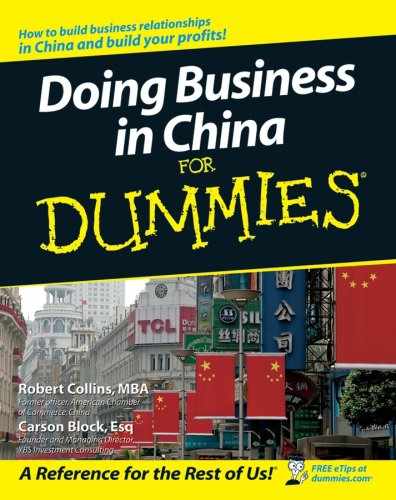Navigating the Airport after You Land
Chinese airports tend to be very crowded. They can be confusing to foreign travelers, even though most signs are written in both English and Chinese. Some newer Chinese airports are very large, so pay attention to where you’re going and leave yourself adequate time to get to and from your gate.
Boarding and exiting a plane in China can be quite an experience. Don’t be surprised if you see people pushing their way through a crowd of people. The best advice is to just go with the flow. Note that airline personnel don’t call seating by rows or sections as they do in the United States. People just start boarding the plane all at once.
In this section, we explain what you have to take care of after you get off the plane.
Health and quarantine
You need to complete a health declaration form upon arrival in China. You get this form on the plane, and the Chinese collect this document from you.
Under the law, China reserves the right to health inspections on passengers who arrive or depart. Foreigners suffering from certain types of mental or infectious diseases aren’t allowed to enter China. And like most other countries, China doesn’t allow certain products, such as fruit, that may cause a health risk in China. Check with your local Chinese embassy or consulate if you have any specific questions.
Immigration
To pass through immigration, you need to complete the right paperwork, including an entry card for foreign visitors, which provides basic arrival information. You receive the entry card on your flight to China. As you enter China, officials inspect this entry card and your other documents and do the usual stamp on your passport. Given the increased security around the world, Chinese authorities may interview visitors upon arrival in China.
Baggage claim
After health and quarantine and immigration, head to the baggage claim. In the unlikely event that your luggage goes missing, find the airline ticket agent and show him or her your baggage receipt. Tell the agent the name of the hotel where you’re staying, and the agent can arrange for your luggage to be sent there.
Customs
You need to complete a customs form before arriving. If you have nothing to declare, just follow the green lane and pass right through customs. If you do have to declare something, you need to go through the red channel and deal with the customs officials. You’re expected to pay duty on any items in excess of the amounts allowed to be brought into China. Here’s what you’re allowed duty-free:
| ✓ | Alcohol and tobacco: Four hundred cigarettes, 100 hundred cigars, and two bottles of liquor (up to 1.5 liters for each bottle) |
| ✓ | Electronics: A laptop, camera, video camera, and tape recorder for personal use |
| ✓ | Money: Foreign currency up to US$5,000 |
| ✓ | Precious metals: Gold and silver up to 50 grams |
Any content — including film, picture, and video — that’s detrimental to China is not allowed to be brought into the country, so don’t bring anything into China that may be considered offensive.

When you leave China, you can take 6,000 RMB in cash with you. Of course, you can use Chinese money only inside the country. It’s not convertible outside of China except for in Hong Kong. China also has some strict laws about the exportation of cultural relics. Make sure you have customs approval to export any antiques before leaving China. Customs officials attach a small red seal to antiques that can be legally taken out of China.
Getting from the airport to your hotel
After you get your luggage, your next destination is the hotel. Some high-end hotels can offer you car service. Make such arrangements in advance. Most foreign businesspeople go to the taxi stand at the airport and head to their next destination.
At the airport, you often see private cars offering rides to visitors. Just ignore them — going by a metered taxi is cheaper and safer.

